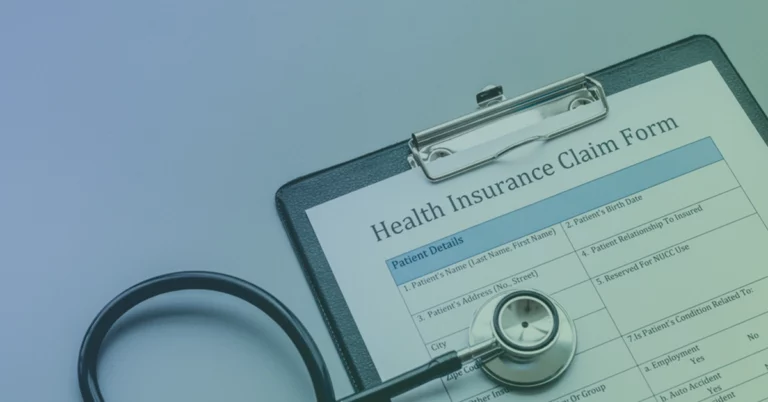Prior authorization within the broad spectrum of medical billing services denotes the approval sought by healthcare providers from a patient’s insurance company prior to delivering specific medical services or procedures. This procedural step is mandated by insurance entities to ascertain the necessity and appropriateness of the requested services in accordance with their established guidelines.
Within the prior authorization process, healthcare virtual assistants from the doctoc meticulously compile and submit a comprehensive request to the insurance company, encompassing details regarding the patient’s medical condition, and the proposed course of treatment or procedure, along with substantiating documentation such as medical records or diagnostic results. In turn, the insurance company then undertakes a thorough review of the submission, weighing its merits against predetermined criteria to determine whether an approval or a denial is warranted.
Notably, prior authorization predominantly pertains to elective procedures or treatments with consideration of their cost, or departure from conventional standards of care, if any. These may encompass a spectrum of medical interventions including specialized surgeries, diagnostic examinations, prescription medications, and durable medical equipment.
To Learn More: Let us handle your Prior Authorization Burden. Book a 1-to-1 Consultation Now!
Prior Authorization Challenges
Listed below are some of the challenges clinics face every day:
- Complex Process: It is a time-consuming and often hectic process for both patients and physicians that may involve extensive paperwork, faxes, and phone calls.
- Opacity and Unpredictability: Obtaining prior authorization lacks transparency. For example, Physicians are often unable to predict which medications will be covered by insurance until patients arrive at the Pharmacy only to be disappointed that the prescription recommended by the doctor was not in the formulary requiring the patient to have to pay a large sum of money from their pocket.
- Inefficient Communication: There’s a disconnect between physicians and insurers, with little to no direct access to information, for example, coverage of a prescription or a medical test under the patient’s health plan.
- Inadequate Knowledge: Decision-makers at health plans evaluating prior authorization requests may lack medical expertise for a particular specialty, leading to inappropriate rejections from a lack of full understanding of the need or benefit to the patient.
- Resource Drain: Physicians and Clinic Staff spend significant time and effort navigating the process, diverting resources away from patient care.
- Patient Frustration and Disengagement: Patients are often frustrated with the process and abandon necessary treatments due to denial, leading to increased health risks and hospitalizations.
- Continuity of Care Disruption: Patients may face interruptions in their ongoing treatment plans due to insurance requirements potentially leading to poor outcomes.
- Appeal Burden: Physicians often face a lengthy and burdensome appeal process to justify treatments that were initially rejected, requiring multiple attempts to secure approval.
- Changing Criteria: Criteria are unpredictable, vary from health plan to health plan, and are subject to internal changes in coverage, making it challenging for physicians to anticipate which tests, treatments, or procedures will require prior authorization.
- Delayed Responses: Insurance companies may take their time to respond to requests, causing delays in patients receiving necessary timely care.
How Does Prior-Authorization Work in Different Specialties?
Instances which Require Prior Authorization in Cardiology
Prior authorization within Cardiology presents unique challenges due to the highly technical nature of procedures, surgeries, and rapidly evolving new and novel treatments. Procedures such as cardiac catheterization, angioplasty, stent placement, cardiac ablation, pacemaker implantation, TAVR and cardioversion require scrutiny to ensure medical justification.
Similarly, cardiac surgeries, whether elective or not, such as coronary artery bypass grafting (CABG), valve repair or replacement, atrial or ventricular septal defect repair, and heart transplant necessitate prior approval to confirm their clinical relevance and adherence to guidelines.
Diagnostic tests are pivotal in evaluating heart function and guiding treatment decisions. Echocardiography (including stress variants), electrocardiography (ECG or EKG), Holter monitoring, cardiac MRI, CT angiography, and nuclear stress testing require prior authorization to ascertain their imperative role in accurate diagnosis and effective patient management.
The Impact of Pre Authorization on Dermatological Treatments
Prior Authorization in Dermatology is involved in various tests, surgeries and commonly performed procedures including biopsy, cosmetic procedures etc. Biopsies may require especially if deemed by the insurance company to be cosmetic or elective.
Various dermatologic surgeries such as Moh’s, scar revision, skin tag removal, skin grafts, flap surgery and excision of tumors require prior authorization.
Genetic testing required for diagnosing inherited skin conditions and assessing the risk of skin cancer is costly and may not be considered a medical necessity in all circumstances.
Various dermatological cases require prior authorization for medications. These include topical treatments, corticosteroids, retinoids, immunomodulators and biologic agents prescribed for conditions such as acne, psoriasis, eczema, and skin cancers including Melanoma.
Gastroenterological Prior Authorization: Ensuring Quality Care Amidst Complexity
Prior auth in Gastroenterology is often required for Endoscopy Procedures, Imaging Studies, Surgical Procedures, Pharmacological Therapies and specific Diagnostic Tests.
Endoscopy Procedures that require prior authorization include Upper Endoscopy (Esophagogastroduodenoscopy or EGD), Colonoscopy, Endoscopic Retrograde Cholangiopancreatography (ERCP) and others.
Colonoscopy, vital for colorectal cancer screening, relies on the need for sedation and ASC facility resources often prompt the need for prior authorization. ERCP and increasingly complex therapeutic endoscopic interventions such as biliary and pancreatic therapies are now frequently performed and require prior authorizations.
Neurological Prior Authorization: Navigating Complexity for Optimal Care
Prior Authorization in Neurology specialization is required for MRI, PET scans, Electroencephalogram (EEG), Electromyography (EMG), Brain Surgery, Spinal Surgery, Botulinum Toxin Injections, Intravenous Immunoglobulin (IVIG) Therapy etc.
Brain Surgeries such as craniotomy, tumor resection, or epilepsy surgery may require due to their invasive nature and associated risks. Spinal Surgeries such as spinal fusion, laminectomy, or disc replacement may be required for complex or elective surgeries.
Oncology Prior Authorization
Prior Authorization in Oncology is required for various Biopsies, Imaging studies, Surgical Procedures, Chemotherapy, Immunotherapy, Radiation Therapy etc. It controls costs and ensures appropriate care. It safeguards patient safety and promotes quality patient care.
Oncology includes traditional therapies like surgery and chemotherapy, as well as newer, more targeted treatments like immunotherapy and precision medicine. It considers several factors such as cancer type, stage, biomarker status, and treatment history while ensuring appropriate patient care.
Prior Authorization is almost always required for radiation therapies like External Beam Radiation and Brachytherapy. Genetic testing for mutations in the BRCA1 and BRCA2 genes may require prior authorization to determine eligibility and coverage. Prostatectomy and Colectomy are some of the surgical procedures in Oncology that may require Prior Authorization.
Radiology Prior Authorization
Prior Authorization in Radiology specialization is required for various diagnostic tests such as CT, MRI and PET scans, as well as Interventional Radiology Procedures like angiography, embolization, and biopsies. Radiofrequency Ablation (RFA) and Cryoablation also require when used in the treatment of tumors.
Physical Therapy & Occupational Therapy Prior Auth
Physical Therapy (PT) & Occupational Therapy (OT) require prior authorization most often required in post orthopedic surgeries such as Total joint replacement surgeries, and after any prolonged bed confinement that results in deconditioning of the patient
Types of Prior-Authorization
Surgical: Pre-authorization in medical billing for surgical procedures is required before almost all elective surgeries. The clinic staff ensures that the proposed surgical procedure is a medical necessity and is required based on the patient’s condition.
Diagnostic: Diagnostic Prior authorization applies to MRIs, CT scans, PET scans, and genetic testing. The clinic assures the insurance company that the mentioned tests are necessary for accurate diagnosis and treatment planning.
Therapeutic: Treatment pre-authorization is necessary for therapies such as chemotherapy, radiation therapy, and specialized treatments. It ensures that the recommended treatment is justified based on the patient’s condition and previous interventions.
Pharmacy: Pharmacy prior authorization is required for certain expensive prescription medications, not covered under the Insurance policy or have specific usage criteria.
Common reasons for prior authorization Denials
Prior authorization denials can be frustrating for healthcare providers and patients alike, often leading to delays in necessary treatments and added administrative burden. Understanding the common reasons can help healthcare providers navigate the process more effectively and improve the likelihood of approval. VMA from Doctoc ensures pain-free prior authorization by avoiding the below points.
- Insufficient Time for Processing: One common reason is submitting the request too close to the time of the scheduled procedure or treatment. Insufficient time for processing can result in delays or denials as insurance companies may not have adequate time to review the request thoroughly.
- Incorrect Patient Information: Denials take place due to errors in patient information, such as misspelt names, incorrect birthdates, or outdated contact details. Healthcare providers must ensure that all patient information provided in the authorization request is accurate and current.
- Denial of the Claim: Requests may sometimes get denied because the insurance company decides that the requested service or treatment is not medically necessary or covered under the patient’s health plan. This can occur if the treatment is deemed experimental, not supported by clinical evidence, or considered elective.
- Outdated or Incorrect Insurance Information: Denials may occur if the insurance information provided is outdated, incorrect, or does not match the information on file with the insurance company. Healthcare providers need to verify patients’ insurance coverage and eligibility before submitting authorization requests.
- Inadequate Supporting Evidence: Insurance companies typically require supporting documentation, such as medical records, test results, or clinical notes, to justify the need for the requested service or treatment. Requests may be denied if the submitted evidence is insufficient or does not demonstrate medical necessity.
- Failure to Contact the Insurance Company: Some denials result from a failure to follow up with the insurance company or provide additional information requested during the review process. Effective communication and timely response to any inquiries from the insurance company can help prevent denials.
- Improper Use of PA Codes: Incorrectly coding the request can result in denials. Healthcare providers must ensure that they use the appropriate procedure and diagnosis codes when submitting authorization requests to align with the insurance company’s requirements.
- Changes in Payer Rules: Payer rules and guidelines for may change over time, leading to denials if healthcare providers are not aware of or do not adhere to these changes. Staying informed about updates to payer policies can help prevent denials.
- Failure to Meet Payer Guidelines: Each insurance company has specific guidelines and criteria for approving requests. Failure to meet these guidelines, such as age restrictions, coverage limitations, or documentation requirements, can result in denials.
The Importance of Prior Authorization, Insurance Verification and Eligibility in Medical Billing
Pre-authorization in medical billing offers multifaceted benefits, enhancing both patient experience and healthcare provider efficiency:
- Financial Security: Patients gain clarity on their insurance coverage and potential out-of-pocket expenses through pre-authorization, fostering transparency and averting financial surprises.
- Improved Efficiency: Healthcare providers streamline their workflows by securing pre-authorization before delivering services. This preemptive approach reduces treatment delays and administrative hassles, optimizing patient care delivery.
- Reduced Reimbursement Issues: With pre-authorization in place, the risk of denied claims or reimbursement delays diminishes significantly. Providers can proceed confidently, knowing that the proposed procedures or treatments have insurance company approval.
- Enhanced Patient Care: The pre-authorization process ensures that patients receive tailored and necessary care, promoting positive health outcomes and mitigating the likelihood of complications or adverse events. This emphasis on appropriateness contributes to overall patient well-being.







